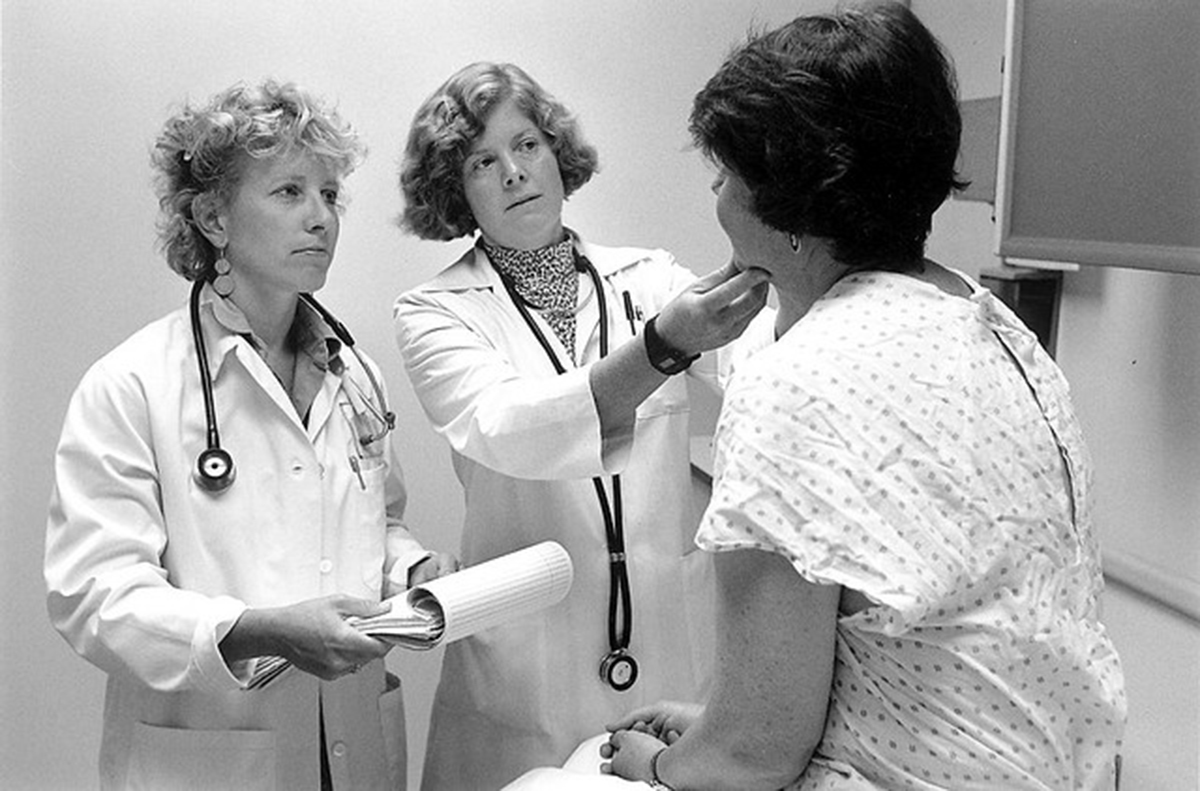Jonas was scheduled for a high-tech surgical procedure to take a close look at an aneurysm in his brain. If such a procedure had been available 25 years ago, it probably would have involved sawing off part of his skull, taking a look, and putting the skull back in place. The operation would have taken hours. There would have been a huge risk of infection. It would have hurt. It would have taken months to fully recover. On top of all that, most of us have distinct aversion to anyone sticking a scalpel in our brains.

Jonas, however, was scheduled for modern brain angiography. The surgeon cuts a tiny, 3 mm (1/8 inch) incision in the groin to reach the femoral artery. He or she inserts a tiny, thin tube called a catheter into the artery that then is manipulated to travel into the brain. The tube delivers a dye that makes brain tissues easier to see on X-ray. There is no need for general anesthesia, although most patients are given a drug like Versed (midazolam) so they won't wiggle around. (Wiggling on the operating table really isn't something you want to do during brain surgery.) There aren't any stitches. There is no pain. You can do ordinary activities with a week, and there are no scars and no need to shave your head.
He had been told to take Prednisone to stop any potential allergy on the table, but he had forgotten it. Jonas had been told not to eat or drink after midnight for his 9 o'clock procedure, but he had stopped off for a breakfast sandwich and coffee on the way to the hospital. In addition to all that, the doctor had ordered an EKG to be taken before the procedure, and Jonas had been too busy the week before to have it.
The story of Jonas is not all that unusual. A Medscape survey asked doctors and nurses how well prepared patients are when they come for day surgery:
- 5 percent reported that their patients come to surgery as well prepared as they would expect.
- 15 percent reported that their patients were not well prepared and reported being "too busy" to attend preparation classes or to do their assigned tasks at home.
- 34 percent reported that their patients were not as well prepared as they "used to be."
- 45 percent answered "it depends," that some patients were prepared and some were not, largely depending on their ages.
How To Prepare For Day Surgery

- Make sure you choose a surgical center with appropriate surgical accreditation. Most surgical centers perform several thousand surgeries a year. The more surgery surgeons and their teams perform, the fewer mistakes they usually make. In the USA, day surgery clinics should be accredited by the Joint Commission.
- You'll almost always meet your surgeon before your procedure. It's very distressing, of course, to look up from the operating table and see someone else. You have a right to ask why any other doctor would perform the procedure if you have not been previously informed.
- You'll almost always meet your anesthesiologist the day or night before or possibly the day of the procedure. You'll be asked some questions about your experience with pain killing drugs, which medications you take, whether you drink alcohol or use street drugs, and about nutritional supplements. A few herbs and nutritional supplements interact with the medications used for anesthesia. It's best to be up front and honest with the anesthesiologist about all the supplements and herbs you take, even if revealing this information results in postponing your surgery.
- If you have chronic medical problems (diabetes, heart disease, clotting disorders, chronic obstructive pulmonary disease, or history of heart attack or stroke, for example), your surgeon has to be informed well before the day of your surgery. It's best to get a referral from your primary care provider to the surgeon so all issues of concern can be discussed.
- Do not eat or drink before your procedure. If you ate or drank something despite being told by your doctor not to, then it's best to 'fess up. The reason for not eating or drinking before surgery is that food or drink can come up from your stomach into your lungs and cause aspiration pneumonia, a potentially serious or even deadly problem. Even if you are going to be getting a local anesthetic, if the operation goes wrong and you have to put under general anesthetic, then it is very important that you have not had anything to eat.
- If you are told to stop Aspirin or blood thinners before surgery, be sure to follow your doctor's orders. If you took the anticoagulant or Aspirin anyway, let your doctor know. In many kinds of surgery, taking an anticoagulant when you are not supposed to do can cause huge problems.
- Don't wear jewelry to day surgery. It will have to be taken from you, and then there will be the issues of secure storage.
- Don't wear makeup the day of your surgery. It is likely to smear. It can cause tape not to stick.
- Do not use colognes or perfume the day or your surgery. Your brain will associate the experience of surgery with the odor of cologne or perfume you use. If you experience pain from surgery, you will recall pain when you smell the same scent even years later.
- Do not wear contact lenses the day of your surgery. They can get lost, or scratch your eyes.
- It's surprising how often day surgery patients forget about child care or elder care until the last minute. Plan ahead and have a backup plan.
- Don't forget to arrange a ride. If it simply is not possible to find a ride, let the treatment facility know. In many cases they will arrange one for you.
- Hollenbeck BK, Dunn RL, Suskind AM, Zhang Y, Hollingsworth JM, Birkmeyer JD. Ambulatory surgery centers and outpatient procedure use among Medicare beneficiaries.Med Care. 2014 Oct. 52(10):926-31. doi: 10.1097/MLR.0000000000000213.
- Hollenbeck BK, Dunn RL, Suskind AM, Strope SA, Zhang Y, Hollingsworth JM. Ambulatory Surgery Centers and Their Intended Effects on Outpatient Surgery. Health Serv Res. 2015 Jan 22. doi: 10.1111/1475-6773.12278. [Epub ahead of print].
- Photo courtesy of winnes2: https://www.flickr.com/photos/winnes2/6909979264/
- Photo courtesy of seattlemunicipalarchives: www.flickr.com/photos/seattlemunicipalarchives/4058808950/
- boards.medscape.com/forums?14@@.2a7ca678!comment=1
- (Registration may be required, but article is free.) http://www.emedicinehealth.com/outpatient_surgery/page2_em.htm
- (Registration may be required, but article is free.)


Your thoughts on this